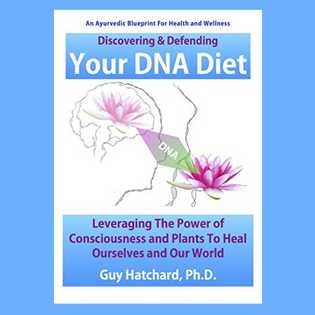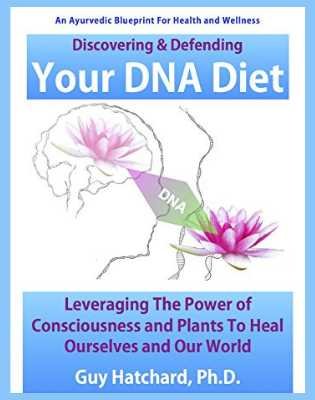Is there a myocarditis time bomb affecting athletes or is it disinformation?
Are anti vaxxers ignorant people who suffered childhood abuse?
Adverse effects of mRNA Covid vaccination affecting athletes is not a sacred cow in the fact checking world.
Throughout 2021, multiple attempts were made to debunk persistent reports that an unusual number of athletes were suffering cardiac events that might be related to mRNA Covid vaccination.
The main theme of these fact checking efforts was denial—athletes were not at risk and cardiac events were not happening.
In 2022 this dialogue is evolving because the numbers are growing and harder to ignore. According to an investigative report by OAN, a pro-Trump online US news site, 769 athletes suffered sudden health events between March 2021 and March 2022 with an average age of 23 years.
For example in February, fifteen despairing players withdrew from the Miami Open. Yes, that is 15 in one tournament. No doubt anti-vaxxers who were locked out of most sporting events, whether they were participants or spectators, during 2021 called out from the parking lot thank goodness some people are still counting.
Of necessity in the face of mounting numbers of injury reports, the fact checking dialogue has hesitated on the brink, but on February 1st of this year, the Washington Post still labelled stories of adverse effects of mRNA vaccines on athletes FALSE.
Their story relied heavily on a discussion of a single Danish footballer Christian Eriksen who suffered a cardiac arrest on June 12 2021 just before half time. The circulation of the apparently false story that Eriksen had been vaccinated was attributed by the Washington Post to a shady far right group in Austria seeking to influence their upcoming election. The pro-vaxxers cheered from the stands.
Dig deeper and the story gets more murky. Few if any of the participants in this argument on both sides have verified hard facts to hand. There are a number of people making strong statements based on the certainty of belief.
The Washington Post, who had probably realised by February that it was quite possible that an unusual number of athletes were unexpectedly falling to the ground, decided to finish its article by asserting that the sporting collapses must be due to Covid not Covid vaccination. Again no hard facts about actual athletes, just a polarised muck throwing event.
Data Collection Is the Right Way Out of This Counterfactual Maze
As a scientist, I realise that what is lacking here is reliable data. Why is it lacking? Here is the nub, the authorities are so sure they are right about the safety of vaccines, that they are refusing to collect data.
New Zealand has refused to institute mandatory reporting of adverse events following mRNA vaccination and other countries are in the same boat. We don’t have a lot of data to go on because it is not being collected. Sporting bodies are not counting either, or perhaps they have lost count or looked the other way.
Delving into the world of psychology, I can only find this unsettling. Why wouldn’t we collect data? Why aren’t we allowed to ask questions without being shown a red card? Why isn’t the Ministry of Health counting and publishing up to date medical data on the frequency of cardiac and thrombotic events of all types?
There are stories in the popular press (actually not so popular these days) reporting recent excess cardiac events as due to ‘holiday heart syndrome’ or the need for young people ‘to avoid strenuous exercise’. Neither of these had been a thing until 2021. Why haven’t the MoH quashed these speculative sallies into obfuscation by publishing data? You tell me.
Are the Vaccine Hesitant in Dunedin Victims of Child Abuse?
The finger-pointing gets worse. One particular ‘wack-an-antivaxxer’ sport recently originated at Otago Medical School. A popular digest of a study of 1,000 people born in Dunedin, NZ in 1972 was reprinted in leading publications around the world.
The article implied that anti-vaxxers suffered from sexual abuse, maltreatment, deprivation or neglect, or having an alcoholic parent as they were growing up. They were also described as low educational achievers likely to suffer from mental illness.
I am a little sceptical by nature, so I noticed that the reports in the popular press were based on an article in a publication called The Conversation, which has received support during the pandemic from the Bill and Melinda Gates Foundation.
The Conversation describes itself as both devoted to academic rigour and seeking to explain science to the general public. Curiously their article about the Dunedin survey only contained a single quantitative piece of information—13% of the respondents were vaccine resistant.
No other quantitative information was provided to support the extreme characterisation of the vaccine hesitant in the article.
I tracked down the actual study entitled “Deep-seated psychological histories of COVID-19 vaccine hesitance and resistance”. Seven of the ten authors were based in the USA. One of the authors disclosed that he is funded by the US CDC.
The survey completed in April 2021 actually found that 13% of the respondents were vaccine resistant and 12% were vaccine hesitant. So fully 25% of the respondents were vaccine hesitant to varying degrees.
I then rapidly came across an old friend used to distort information: absolute differences versus relative differences.
Of those willing to vaccinate (note the word used is willing, not necessarily keen), 62% had at least one Adverse Childhood Event (ACE). Of those hesitant or resistant to vaccination 73% had at least one ACE. 62% vs 73% is not a large difference in absolute terms.
Based on this small difference, Professor Richie Poulton, a Dunedin-based co-author of the study was quoted in the Otago Daily Times as saying about the vaccine hesitant and resistant responders:
“The childhood experiences of those surveyed ranged from sexual abuse, parental neglect, poverty, to isolation and lack of achievement in school. They covered the whole suite of difficulties you can think of that might impinge on a person’s good development. Their personality became … very stress reactive – they saw danger or threat where there essentially was none”.
Now you probably did percentages at school, do you think Professor Poulton’s comments accurately reflect the difference between 62% and 73% exposures to at least one ACE? Because I certainly don’t. A significant percentage of both groups experienced ACEs growing up, but they had different opinions about vaccination.
Wouldn’t it be more productive to ask: why do we have such a high rate of ACEs in NZ? Is our mental health service under funded? Is our education system failing us? Is support for families sufficient?
I went further down the pages examining results of a battery of ‘questionaires’. I found that although there were measurable differences between the two groups: ‘vaccine willing’ and ‘vaccine hesitant and resistant’, their average scores were well within the standard deviation of the mean standardized score for each test.
This means most people responding to the survey were actually relatively average people. The vaccine hesitant and resistant were being falsely characterised as ill-educated social deviants. This sounds like victim blaming. So much for the academic rigour and capacity to explain science that The Conversation proudly aspires to.
Unpicking the Messaging is Really Important Here. It involves psychological manipulation
You can see where I am coming from can’t you? Were the media comments about the study an unsupported and false attempt to discredit the unvaccinated and categorise them as outcasts and misfits without the necessary intelligence to think for themselves?
The small differences between the two groups were insufficient to justify this black and white condemnation widely shared around the world’s media.
There were some differences in educational attainment. 35% of the vaccine willing had a BA degree or higher. 15% of the vaccine hesitant or resistant had a BA or higher.
However, the Dunedin results may be misleading regarding the influence of education. A study in the USA found that people with a PhD were more likely to be vaccine hesitant, implying that a decision to not vaccinate may possibly be encouraged by the development of high level critical thinking.
In the mainstream media articles, Professor Poulton pleaded with us to feel pity for the unvaccinated, because of their supposed difficult childhood (which was in fact not so different from that of the vaccinated).
Was he simply lowering our opinion of the unvaccinated by playing upon stereotypes? Subtly hammering home the current NZ mainstream media messaging that only right wing extremists and selfish antisocials remain unvaccinated.
Did he realise that the unvaccinated are legitimately concerned about the vaccinated because they have been unwittingly exposed to serious but as yet unquantified medical risk?
As I am aware that Covid mRNA vaccine adverse events are running at 30-50 times higher than any previous vaccine, I would ask different questions of the data:
- Were those willing to be vaccinated being misled by the inadequate content of their education?
- Do prior adverse experiences provide good reason to be more cautious in future?
What do you think?
The Immunisation Advisory Centre at the prestigious University of Auckland (incidentally partly funded by pro-vaccine interests) reassuringly says:
“Confirmed cases of myocarditis are rare…More than 80% of reported cases of myocarditis following mRNA Covid vaccination have recovered quickly with rest and commonly used oral anti-inflammatory medications such as ibuprofen.”
Are you reassured by this, or have you looked at the Medsafe adverse event data where 18,000 mRNA vaccine recipients reported chest pain and shortness of breath—symptoms admitted by the Immunisation Advisory Centre to be indicative of myocarditis?
Have you concluded, like me, that as many as 80% of cases of myocarditis among the vaccinated remain unreported and untreated? A ticking time bomb, of which professional athletes represent only the tip of the iceberg.
Bickering without accurate data is a waste of time. If you refuse to look, you will never see.
The question is how long are our health authorities going to continue to look the other way and refuse to start counting accurately, appropriately, and retrospectively?
How long before government and media messaging becomes respectful and objective?






